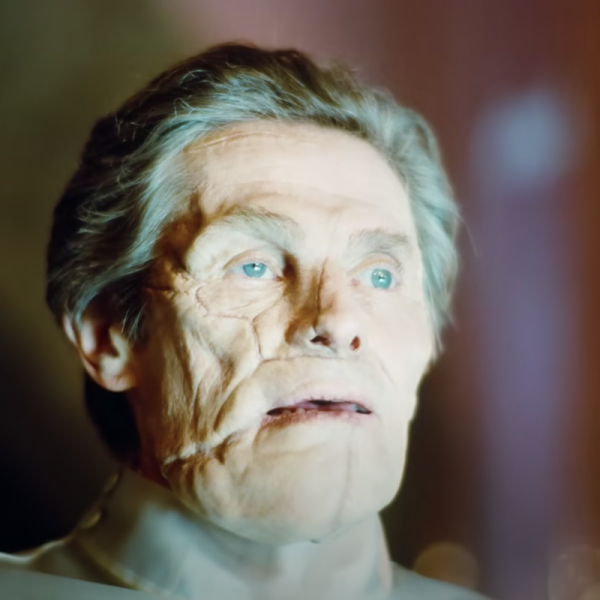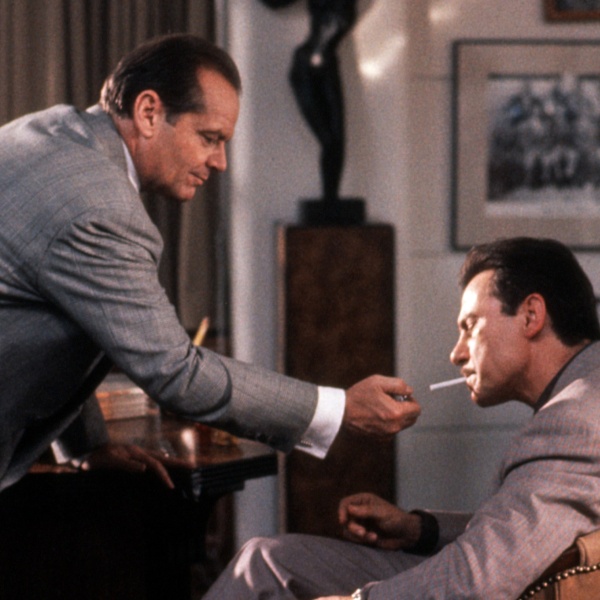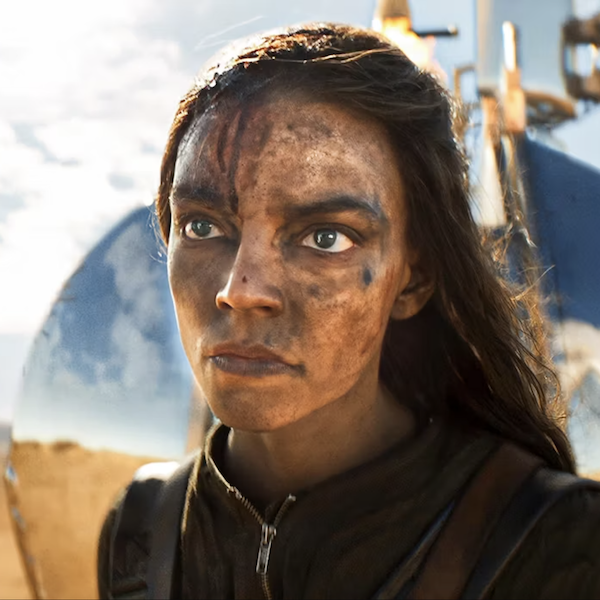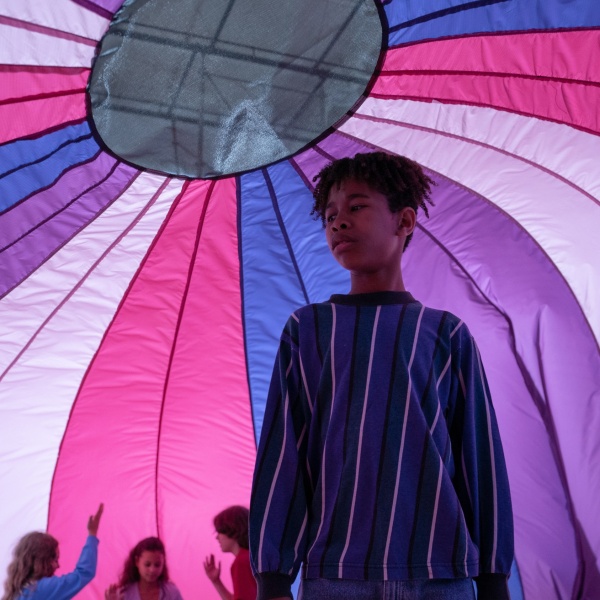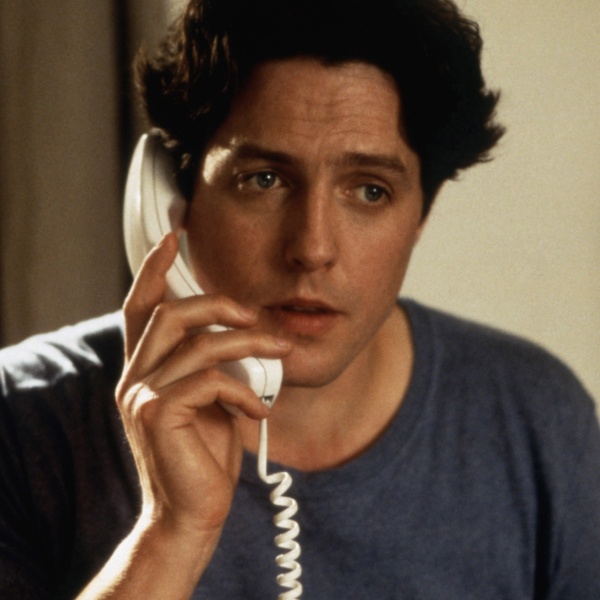
Long a personal pet project for Mark Wahlberg, “The Fighter” finally kicked into gear once David O. Russell was brought into the director’s chair (replacing Darren Aronofsky who exited and went on to make “The Wrestler“). The film was a rugged indie effort, but one that attracted top tier talent including Christian Bale, Melissa Leo and Amy Adams, all of whom are being eyed as very strong candidates for nominations at the upcoming Oscars.
The is based on the true story of boxer ‘Irish’ Micky Ward (Wahlberg) who rises through the ranks to become a contender thanks to the assistance of his troubled, drug-addicted half-brother Dickie Ecklund (Bale). Thrown into the mix is Alice (Leo), the fierce matriarch of the family, Charlene (Adams) a concerned girlfriend, seven sisters who fiercely protective of their brothers and you have a volatile cocktail of characters. The film is electrifying delicate balance between a domestic drama and a swing-for-the-fences feel-good sports story. Blessed with devilishly great performances from his cast and a strong visual style, David O. Russell balances the film’s shifting tones incredibly well resulting in a film that is nervy, heartbreaking and rousing all at once.
We talked to director David O. Russell about what he brought to the project when he came on board, the importance of the female characters to the picture and how he discovered cinematographer Hoyte Van Hoytema. “The Fighter” opened earlier this month in limited release and expands wider this weekend.

“The Fighter” is a project that’s been kicking around for a while before you got to it. Were you the one who rescued it from stalling?
Well, I did my share as a group, I joined a group who were already….rescuing it. Yeah, it had banged around a bit and I mean Mark Walberg contributed so much, Todd Lieberman and David Hoberman contributed so much, so many producers contributed so much. Ryan Kavenaugh contributed so much. I contributed the part of reshaping the story, um, the way I saw it, which I think meant bringing the women [more prominently into the story].
And one of the elements that really comes out in the film is that it has a surprisingly large amount of humor. Is that also something you brought to it?
Yeah. That’s the way I see it. I mean, these people are real, and they’re amazing characters, and they are intense and they’re emotional and they’re tragic, and they’re also really funny.
And is that something you picked up from meeting the actual guys or was that something you felt was needed in the script?
I would say both. I would say that when I met them and I saw tape on them, I instantly saw the charm and the “Oh-my-God” of who these people are. You know, sort of the way you, you know…the characters in “Raging Bull” crack me up. As much as they break your heart, there are a lot of scenes that, it’s that kind of sublime thing where it’s both.
And what was it about the material in the first place that got your attention that you wanted to attach yourself to direct it?
Really the fact that I had never seen characters like this. I had never seen this mother with these seven sisters, like a gang. And the women characters were really strong and the dynamic around the men, with the women and the family was really strong. And in addition to the dynamic between the two men.
And it’s a sports film as well. Is that something that you’ve longed to do?
Um, I don’t think that I had, necessarily, the same burning desire to make a sports film as Mark did, and I never really saw it as a sports film. I know that it has amazing, true boxing in it, an amazing true boxing story is in it. But to me that’s neck and neck with the story of the emotion and the characters. And Mickey’s fights practically play like cinema any way. Like the middle fight, the Sanchez fight, I would watch over and over and over, and we basically used the same commentary [from the original fight], we just cut and pasted it. And you can’t duplicate a shot that happens when Mickey knocks that guy out….because they had been saying what a bum he was for six rounds of commentary. A great story is a great story. It kinda starts to transcend category for me. That’s how I feel. So like, cinematically, if something is really raw and riveting and fantastic, it could have sports in it, then I guess it’s kinda a sports movie.
How did you help the cast find the rhythm that sustained their characters and that tone between drama and humor for the course of the movie?
Well, Melissa’s [character for example], is sort of a very pivotal character in the movie, that’s a great character in cinema. I mean, Melissa is just like a really loving mother who, you know, it’s hard to get it right with one kid, and it’s harder with nine kids. And she tried to do her best and there were mistakes she made, but it never meant she didn’t love her kids, and that’s just a fantastic character. And she still looks good after having nine kids. Which is how the real Alice was, or even how Mark’s mother was, after they had nine kids and they were in their 40s and 50s, it was like, “Gee, you still look good.”
And was working on that character something you did with Melissa Leo, or did you have something very specific in mind?
I don’t know, I kinda had a feel for the character, the way I helped shape it with the writer Scott Silver and the way I worked on it with Melissa together. She reminded me of my mother in some ways, um, I kinda understood who she was in my bones, and some lines just came naturally to me, such as in the middle of an argument, pulling out the fact that you owe money, you know, just takes your legs out in the middle of an argument. That was like a ninja weapon of my mothers. It would be just like a TKO, a six round TKO in any kind of argument with my mom.
And what really stuck me as well was with Christian Bale’s character; very very charming, very likable, yet the drug use is never glamorous, is never seen as something cool as well. Was that a tone that was difficult to achieve?
I’m not sure the crack like in Lowell ever was [laughter].
No, but you watch some movies and the drugs scenes are set to hip music and it’s not really perceived negatively. Was that something you were concerned about? Because Dickey is so charming, such a likeable guy.
Well, Dickey is an amazingly charming person, which is a beautiful gift for the filmmaker because he could talk a dog off a meat wagon. He’s just very charming, and that’s the crazy enigma of his character, if he was just a straight up loser, I don’t think that’s half as interesting. 
And the cinematography, is very immediate, very raw and gritty. Can you talk about how you worked with Hoyte Van Hoytema to achieve that?
Well, the reason I liked Hoyte Van Hoytema…I saw something he shot, “Let the Right One In,” which was a completely different style. And then he had done a series in Sweden called “How Soon is Now,” and it was shot black and white, hand held, and it had like an early 60’s look, and it was amazing, and I said that’s how I’d like to shoot. And so we got a great steady-hand camera operator named Geoffrey Haley and between me, Jeff, and Hoyte, we just got a rhythm. And the rhythm is the way you feel the shots, and I would say for me, in some ways, the most assured I ever felt with a camera in terms of it just fit like a glove. Just like the songs we picked and the music we picked, it ended up feeling like it fit the film like a glove.
And the songs, I want to talk about that for a second. How did you choose them? Are those songs that Dickey and his brother, is that the kind of thing they’d listen to?
I would say for sure, it’s the music that they would listen to. The Whitesnake track [“Here I Go Again”] was his entrance song for a while. That other song by that local band, the Dropkick Murphys [“The Warrior’s Code”], when he comes in, that was an entrance song that he had also. And I would say those guys are very kinda classic rock type guys, like Led Zeppelin, Aerosmith, Red Hot Chili Peppers, Hall & Oates, there’s a Breeders track in there that fit really good, and I think that, we were all trying to center it around, you know, late 80s early 90s too. Some of it is timeless rock, like Zeppelin, but some of it is specified to that particular time. When they had those tight pants and big hair.
At one point it seemed you were attached to about 50 different projects. Do you like to have a lot of work ongoing, a lot of options?
I don’t know. It was a very productive time for me in the last couple of years. I wrote a lot of things by necessity, you know, and I wrote some scripts that I really quite like. They didn’t come together yet, but they will come together I think. There’s a bunch of them. But those are scripts I really like. I’m not sure which other ones you’re talking about. I know what you mean, my name got bandied about a little bit.
For example, just yesterday I’m hearing that your next film will be “The Silver Linings Playbook” which I know has been around for a little while.
Well I really love that. I wrote that. And I wrote that for Sydney Pollack and Anthony Minghella who died. So when they died, I was supposed to make it three years ago, and then they died, and it was like, ok what’s happening, and we were with Harvey [Weinstein], and he wasn’t in the best place to do it at that time, so it was kinda, we needed to find the right timing for me and Harvey to do it together, but we definitely want to make it, it’s a really good picture. But what happens when you get a little bit of heat that it’s a really good picture, suddenly everybody comes forward. You know, that’s a good thing. So I would like to make that film for sure. I don’t know when it will land, and Harvey and I know about this. We’re trying to figure out when it will fit.
And is there some truth that Anne Hathaway is attached, and Bradley Cooper? Or is that just sort of speculation at this point?
Anne Hathaway is a name that.…there are a couple of names that have been talked about, and those are some of the names that have been talked about. So it’s a process, but those people have definitely read the script, and there’s a whole conversation going on.
Another thing that’s pretty exciting that we’ve been hearing about is “Uncharted.” It’s a bit of a different thing for you, it’s a big studio film based on a video game. What attracted you to that?
The core of the idea turns me on, which…I can’t really talk about too much cause it’s something I’ve extrapolated from the pillars of the game, because the game has very simple basic pillars, and then I have extrapolated it into a kind of a very sophisticated and refined time family that operates on an international stage. And that’s very interesting to me. Especially with certain actors, that’s very interesting to me. Because you get the family again.
Obviously, being a big studio picture, set up at Sony I believe, you have more resources available to you. Is that something that’s comforting? Especially in the wake of “Nailed,” which had some issues being an indie production? Is there any shot that you’ll go back and wrap that one up?
I think you kinda keep going and stay with the forward moment, that’s kinda what you have to do. So that’s what I’m doing.
So “Nailed,” will it be your “Magnificent Ambersons” then?
I’m not sure how that one ended. You know more about cinema history than I do. What happened, did Orson Welles not complete that?
No, the studio ended up taking it from him, re-editing it and hacking off, I believe, 30 minutes of the film.
He only did 30 minutes of it?
No, his cut was 2 hours, and then they cut off half an hour.
Oh, so that’s just a long cut that they then trimmed.
Well that’s a very positive way of looking at it, yeah.
You’re saying he had a very long cut, and they took a half hour out of it?
Well they wrested it from his hands and said this is the cut that we’re delivering. They sort of locked him out of the editing room.
So that comparison doesn’t really work cause at least he had a cut that was his (laughter). I didn’t even have a cut that was mine, because of a financing situation.
Did you like what was developing there, before things went south?
There was a lot that was going on that I liked, but it was kinda a stillbirth, you know? So when that happens, the whole thing gets kinda weird.

